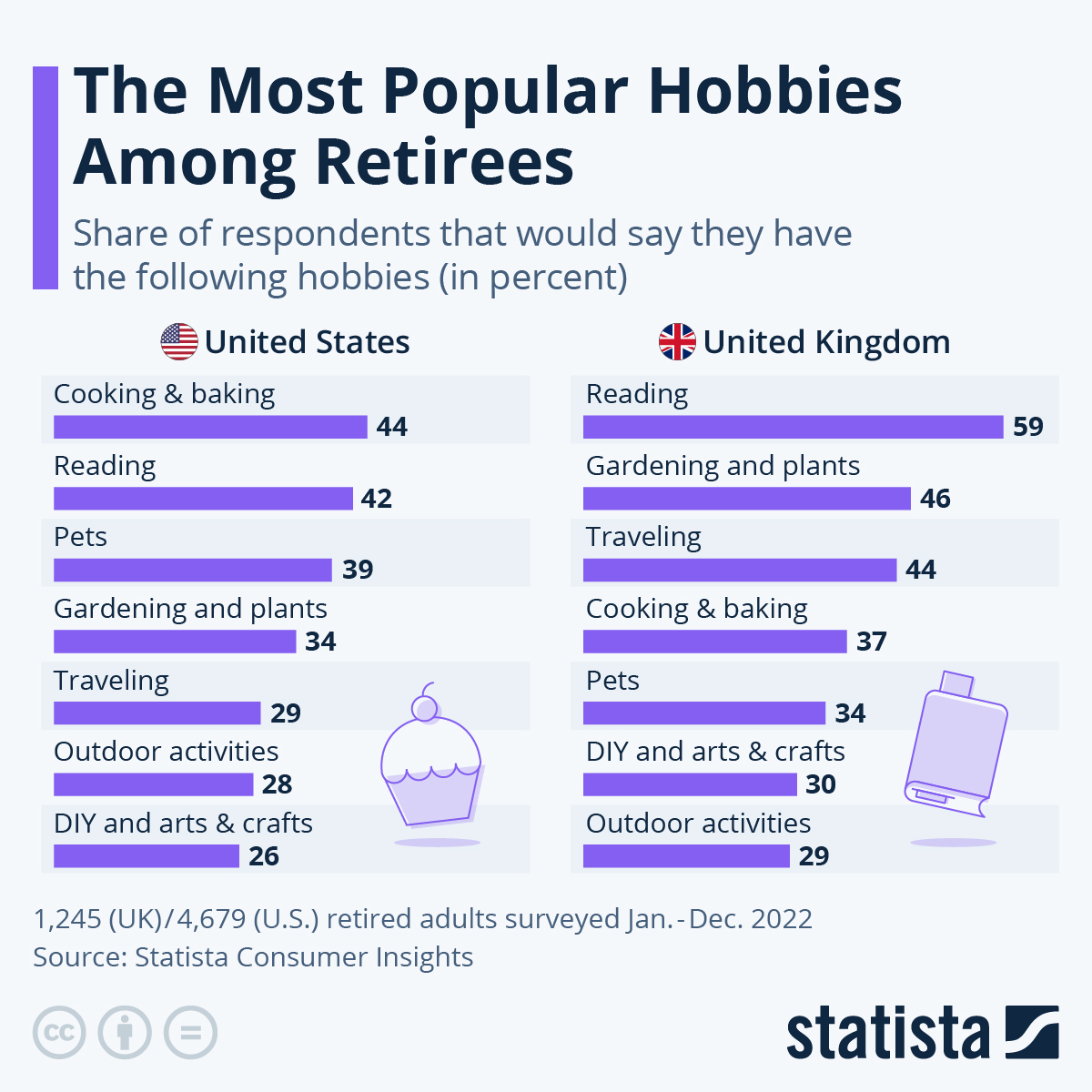“I can’t wait to retire” is not a rarely heard statement. After working for so long, many people look forward to the peace and quiet of retirement.
At the same time, however, once there, some could have the sudden realisation that with so much free time, they aren’t quite sure what to do with it. Of course, there are the people who have everything planned well beforehand, but others need to take some time to discover what they enjoy most.
Taking up new hobbies or dedicating more time to old ones is a great way to spend your retirement. It might be surprising to learn things about yourself once you reach your golden years. Reading, gardening, cooking and baking are among the most popular hobbies among US and UK retirees, according to data from Statista’s Consumer Insights.
Surveying over 5,000 people, Statista found that cooking and baking was the most popular hobby for retired people in the US in 2022, with 44% of the respondents saying they enjoy the activity, followed closely by reading, at 42%. On the other side of the pond however, reading took first place, with 59% of the participants saying it is one of their pastimes, while cooking and baking only came in fourth place, with 37%.

Gardening or taking care of plants, travelling and taking care of pets were also among the favourites in both countries, although it seems Brits enjoy travelling just a tad more, with 44% of the UK participants listing it among their hobbies compared to only 29% in the US. Outdoor activities, DYI and arts and crafts are only fancied by less than a third of both groups.
One would imagine that once you’ve reached a certain age, socialising becomes more important to avoid loneliness, especially since you don’t see your co-workers every day anymore. But it turns out only 24% of retired Brits consider socialising a hobby and even less so in the US, with only 18%.
Maybe somewhat surprisingly, the current retired generation is already keen on video games. In the US, the eight preferred activity among retirees in 2022 was playing board games, with 21%, followed closely by video gaming, with 19%. I would argue that playing board games involves some socialising as well, but maybe they enjoy playing in silence.













